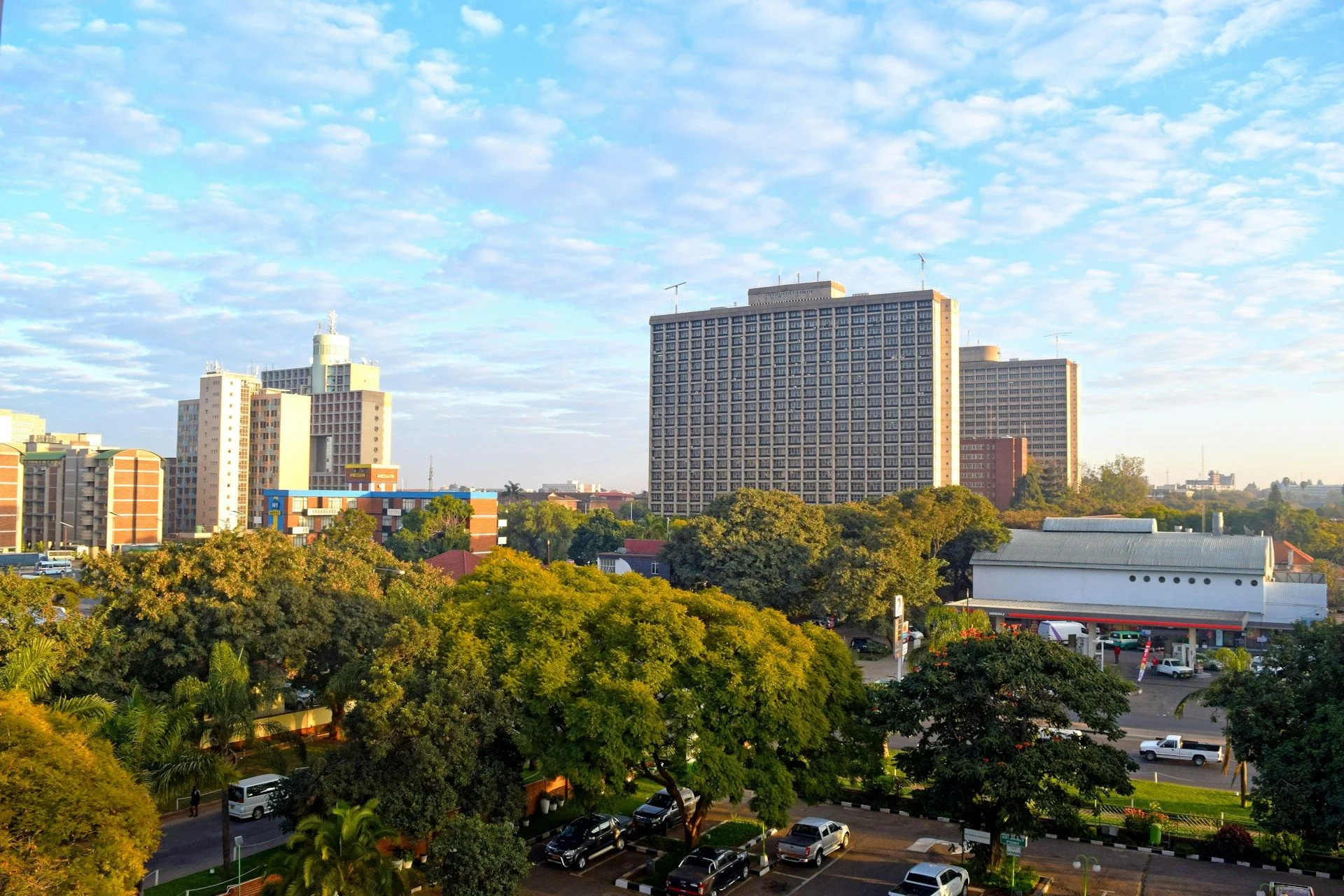Real estate in Harare, ZimbabweCity homes betweengardens, offices, and markets

Best offers
in Harare
Benefits of investment in
Zimbabwe real estate
Urban growth drives demand for new housing
Harare and Bulawayo continue to expand, creating opportunities for residential development and entry-level land acquisition.
Steady inflow of private capital from abroad
Zimbabweans living overseas invest in homes and plots, fueling gradual development and long-term property ownership.
Wide availability of undeveloped and rural land
Large plots remain accessible for those seeking long-term investment in nature-linked formats — from eco-projects to land banking.
Urban growth drives demand for new housing
Harare and Bulawayo continue to expand, creating opportunities for residential development and entry-level land acquisition.
Steady inflow of private capital from abroad
Zimbabweans living overseas invest in homes and plots, fueling gradual development and long-term property ownership.
Wide availability of undeveloped and rural land
Large plots remain accessible for those seeking long-term investment in nature-linked formats — from eco-projects to land banking.

Useful articles
and recommendations from experts
Real Estate in Harare, Zimbabwe
Why Invest in Property in Harare
Harare, the capital and largest city of Zimbabwe, serves as the country's economic, political, and cultural hub. Despite economic fluctuations, Harare has remained a focal point for real estate investment due to its strategic importance, expanding urban population, and demand for housing, office space, and retail properties. The city’s mix of upscale suburbs, emerging residential areas, and growing commercial corridors offers a range of opportunities for investors seeking value, appreciation potential, or steady rental income.
Types of Property in Harare
The city offers several real estate categories:
- Residential houses — Detached homes dominate the market, with varied styles ranging from modest family units to luxury villas in suburbs like Borrowdale and Mount Pleasant.
- Apartments and flats — Mostly mid-rise developments in central Harare and areas like Avondale and Milton Park.
- Commercial buildings — Office blocks, retail stores, and hospitality properties around CBD, Belgravia, and Eastlea.
- Industrial and warehouse facilities — Found mainly in Graniteside, Southerton, and Workington industrial zones.
- Land plots — Gaining popularity for speculative and residential development in peri-urban zones.
Legal Framework and Foreign Ownership
Zimbabwe’s property law allows for real estate investment by both citizens and foreign nationals, though restrictions apply:
- Foreigners may purchase property but typically through a registered company or with approval from the Ministry of Local Government and relevant authorities.
- Leasehold and freehold options are available, depending on land classification and local council regulations.
- Title deeds must be verified carefully, as land registration systems have faced inconsistencies.
- Investment via local partnerships or real estate funds is common for foreign investors seeking streamlined acquisition.
Property Prices and Market Dynamics
Prices in Harare vary widely depending on location, infrastructure, and property type:
- 3-bedroom house in medium-density suburb: $50,000 – $100,000
- Luxury home in Borrowdale or Gunhill: $200,000 – $600,000+
- City-center apartment or flat: $30,000 – $70,000
- Commercial office (CBD): $900 – $1,500 per sq. meter
- Land plot (per 500 sq. m): $5,000 – $20,000 depending on location
Rental Yields and Demand
Harare has a large rental market driven by:
- Expats and diplomats — Often concentrated in gated communities and luxury suburbs.
- Middle-income families — Seeking rentals in areas like Westgate, Marlborough, and Waterfalls.
- University students and staff — Supporting demand around institutions like the University of Zimbabwe.
- NGOs and corporate tenants — Offering stable long-term leases for offices and residential units.
- 2-bedroom apartment in central area: $300 – $600/month
- 3-bedroom suburban house: $700 – $1,200/month
- Luxury villa in Borrowdale: $1,500 – $3,000/month
- Retail space in CBD: $15 – $25 per sq. meter/month
Top Neighborhoods for Real Estate Investment
Key investment zones in Harare include:
- Borrowdale — The premier suburb for luxury homes, embassies, and gated estates.
- Mount Pleasant — A blend of residential homes and university-linked rental properties.
- Avondale and Belgravia — Central, vibrant districts with strong demand for flats and offices.
- CBD (Central Business District) — Suitable for commercial developments, office towers, and high-footfall retail.
- Greendale and Chisipite — Quiet, green suburbs with established family homes and schools.
Buying Process and Costs
The process of purchasing property in Harare involves:
- Conducting due diligence — Including title deed verification, municipal approvals, and legal status checks.
- Sale agreement — Prepared and signed with legal support; includes payment terms and obligations.
- Property valuation and tax registration — Assessed by local authorities for transfer duty calculation.
- Transfer of ownership — Registered with the Deeds Registry after settlement of transfer duties and taxes.
- Legal fees: ~1% – 2% of property value
- Transfer tax/duty: ~4% of property value
- Registration and notary costs: ~0.5% – 1%
- Valuation (optional): based on property type
Who Should Invest in Harare
Harare’s market suits:
- Long-term capital growth investors — Focusing on appreciating residential suburbs or city expansion zones.
- Buy-to-let landlords — Catering to Zimbabwe’s substantial tenant population and NGO sector.
- Developers and homebuilders — Targeting mid-income residential projects on the urban fringe.
- Commercial property owners — Providing office and retail space in the CBD and Belgravia.
Conclusion
Harare remains a cornerstone of Zimbabwe’s real estate activity. While macroeconomic challenges persist, the demand for housing, urban infrastructure, and commercial space keeps the property sector active and opportunistic. For investors with regional insight and a willingness to navigate regulatory complexity, Harare offers both affordability and long-term growth potential across residential, commercial, and land-based investments.
